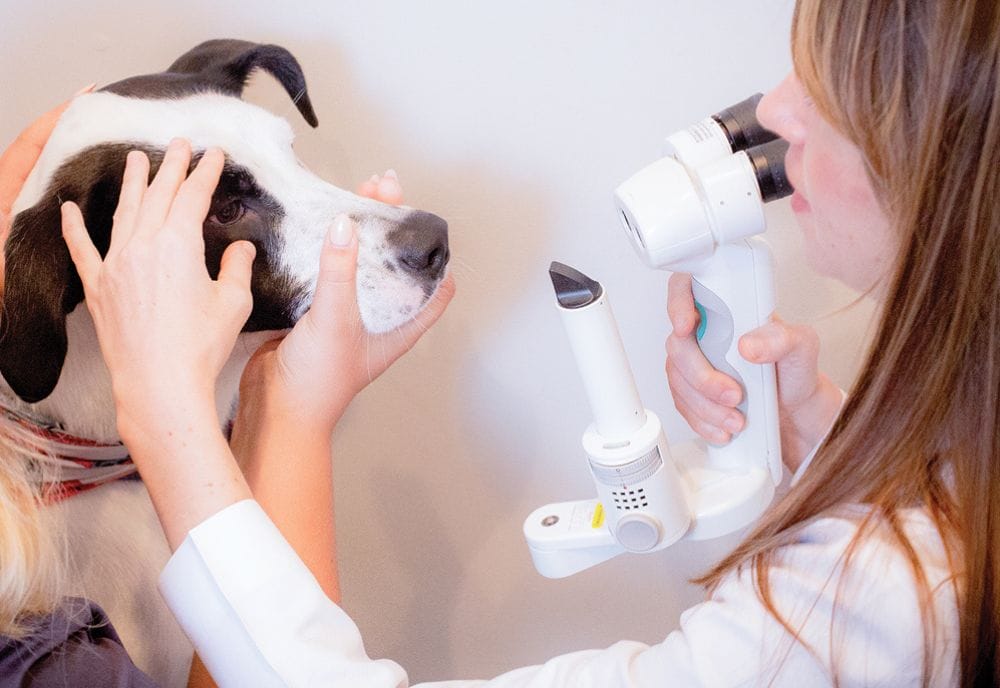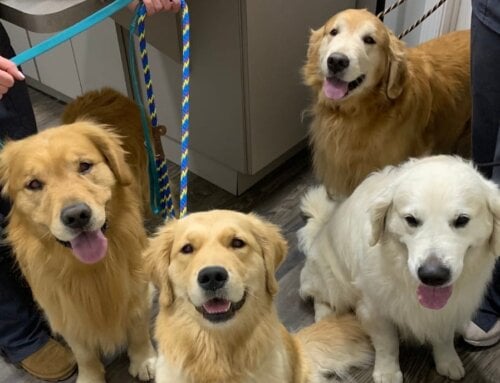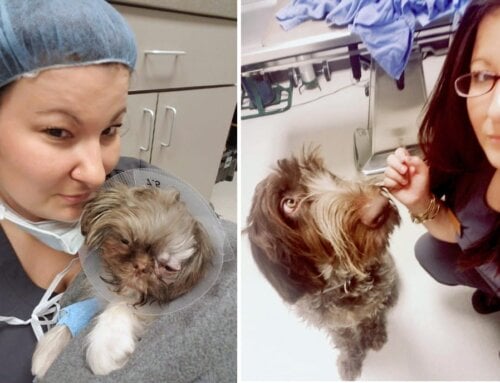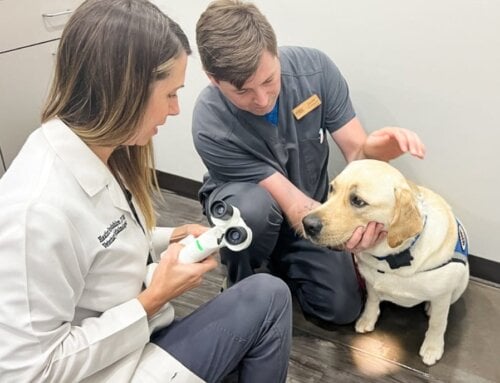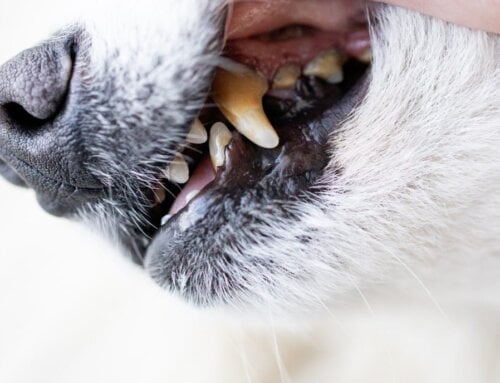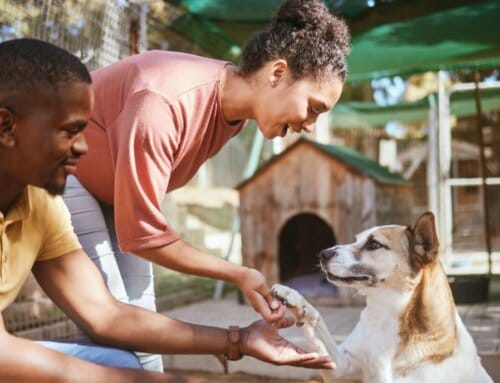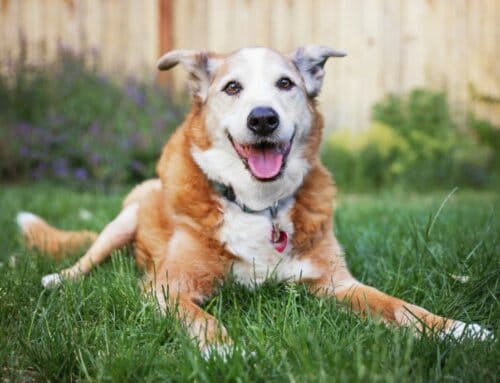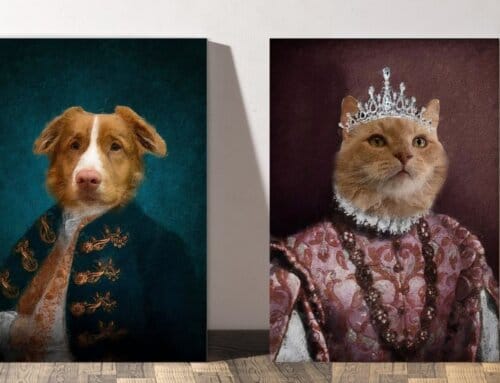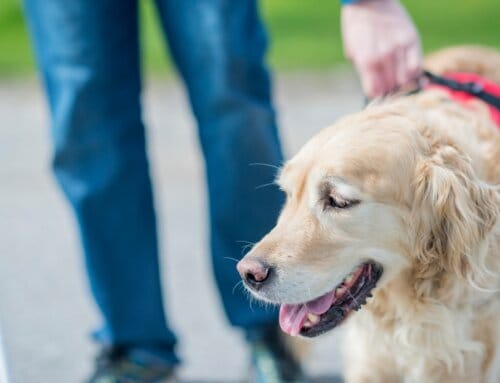New Year’s resolutions are now in play. It seems everyone we know is contemplating ways to eat healthier, move more and reduce stress. Scheduling a checkup with your physician is an excellent step to address such questions and keep potential health concerns at bay. And guess what? It is also good for your pets.
Scheduling preventive care appointments for your four-legged companions offers multiple benefits. They allow your family veterinarian to assess risk factors associated with your pet’s age, weight or genetics—without the added dynamic of it being an emergency appointment. In addition, your vet can provide tips on nutrition, weight management, joint health and potential health issues to monitor.
This is also important for those of us who specialize in ophthalmic veterinary care. Many of the ocular conditions we treat are associated with the conformation of the face and eyes— whether due to the shallow orbits and large eyelid openings of brachycephalic breeds, such as bulldogs and Boston Terriers, or the loose, floppy eyelids of giant breeds.
When the eyelids do not fit snugly and move smoothly across the surface of the eye, the ocular surface can be under constant attack from surrounding hairs and/or inappropriate levels of exposure. This can result in irritation, scarring, ulcer formation or even loss of the eye. Establishing a baseline of a pet’s overall ocular health before more severe concerns emerge is ideal. Additionally, some breeds are predisposed to blinding ocular problems such as cataracts and/or glaucoma (high intraocular pressure), and early diagnosis and treatment of these conditions can improve the long-term success rate.
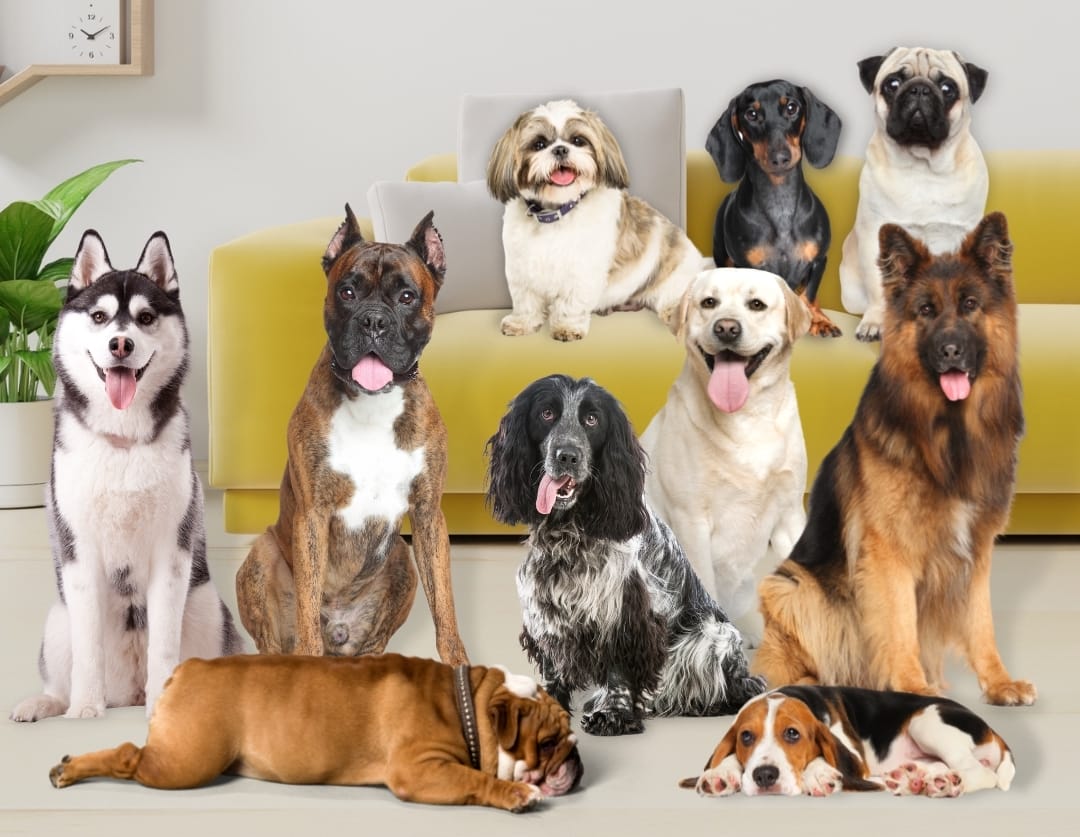
10 most popular breeds and their health issues
The Ocular Wellness Exam
During this ophthalmic exam, we perform a number of noninvasive and painless tests to help us identify any problems with your pet’s eyes or any underlying diseases and conditions that may affect their eyesight or ocular health.
We use specialized instruments that typically are not available at most family veterinary practices, enabling us to conduct a detailed and specialized examination. First, we will assess vision and visual reflexes. Next, we evaluate the front portion of the eye on a microscopic level using a slit-lamp biomicroscope. We then conduct a comprehensive evaluation of the retina and optic nerve through use of indirect ophthalmoscopy. Finally, we perform any ancillary tests on a case-by-case basis, including measurement of the tear production, intraocular pressure or evaluation of the drainage angle of the eye (to assess for predisposition to glaucoma).
When needed, we take digital anterior and posterior segment photographs of the eye. These provide both a benchmark to accurately monitor any disease that may be present and precise findings for you or your family veterinarian.
Our practice also is equipped to perform ophthalmic tests such as ocular ultrasound for evaluating intraocular masses and orbital disease, and electroretinography testing for retinal disease. If indicated, we can assist with genetic testing for your pet.
Partners in your Pet’s Ophthalmic Care
As we examine your pet, we will discuss our findings with you, make sure we answer questions you might have and offer potential therapies as needed. Together, we can discuss next steps to either treat your pet or help ensure they stay healthy.
This year, as you consider your New Year’s resolutions, please resolve to make a preventive care appointment for your pet with your family veterinarian. Should any eye concerns or predispositions arise, they can make a referral to Animal Vision Center of Virginia for an appointment to meet with our team. We love animals, and we are passionate about helping them live better lives through better vision.
